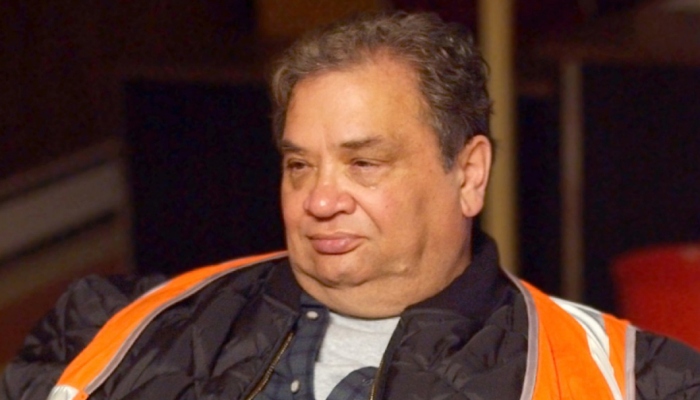One question that arises from Minnesota Opera’s production of Gioachino Rossini’s “The Barber of Seville”: how did such an inane story become so embedded in the consciousness of Western culture?Musical themes from the opera appear in so many movies, TV shows, and commercials — from Looney Tunes to Seinfeld to Doritos commercials, it’s probably got some of the most recognizable music ever, and yet, the plot of the opera is unmemorable. It’s a credit to Rossini’s genius that the opera’s music remains ubiquitous in our cultural soundtrack.It probably made for riotous comedy back when the opera first premiered in 1816.
Count Almaviva, having fallen in love with a young lady named Rosina in Seville, disguises himself as a poor student so she’ll see him for more than his money and status. Rosina is the ward of the awful Doctor Bartolo who wants to marry her himself, and the count employs his old servant Figaro— who happens to be a barber— to help get past the Doctor and into Rosina’s heart. Many antics ensue.

One of the best parts of the opera takes place before any performers are seen onstage. The audience takes in the overture while looking at Allen Moyer’s set design showing a painted backdrop of red curtains contained within a proscenium arch as well as chandeliers that are lifted up at the end of the music.The Minnesota Opera Orchestra, conducted by principal conductor Christopher Franklin, performs the innovative overture superbly.
Rossini had a talent for creating thrilling contrasts of weight and lightness that make for a wholly absorbing piece of entertainment.Throughout the opera, Moyer’s set design reveals ornate scenes, from a town square in the beginning to various rooms within the home of Doctor Bartolo. Often, Moyer used layers of drops to create perspective, even as the style of the paintings themselves are quite flat.
They are focused more on decorative elements than creating something that looks realistic .Matthew Anchel, from left, Katherine Henly, Kara Morgan, Stefan Egerstrom, and Lunga Eric Hallam in the Minnesota Opera’s production of “The Barber of Seville,” which runs May 3-18, 2025 at the Ordway Center for the Performing Arts in St. Paul.
(Cory Weaver / Minnesota Opera)The same could be said for Chuck Hudson’s stage direction. He takes a very theatrical approach, going for large, physical gestures rather than subtle expressions.As an example, when Count Almaviva (played by Lunga Eric Hallam opening night in the double cast production) tries to serenade Rosina (played by Katherine Beck on opening night), he makes little attempt to make it seem like he’s actually playing the guitar he’s holding.
It’s the sentiment he portrays — a man in love — that becomes what is transmitted to the audience, not the mechanics of his guitar fingering. Later, Almaviva pretends to be a piano teacher in order to see his love, and in that case, Hallam makes a joke of being surprised by the orchestral sound his harpsichord seems to make (which is actually coming from the orchestra pit).Playing Figaro on opening night, Takaoki Onishi handles the physicality of the role well, and stops the show with the famous “Largo al factotum” aria, where he sings his name repeatedly and engages in quick patter singing.
Another crowd pleaser is Stefan Egerstrom as Don Basilio, the conniving sycophant. With his long black wig designed by Emma Gustafson, enormous black hat (in a delightfully morbid costume designed by Mathew J. LeFebvre) and deadpan delivery, Egerstrom is a hoot.
As Count Almaviva, Hallam taps into his character’s lovestruck air admirably, and sounds especially good when blending his voice with the lovely Katherine Beck, as Rosina. Throughout the opera, Rossini throws in wonderful fast-paced articulations and comedic zingers, but Rosina and Almaviva’s love duets add a sweet romantic touch.The world is quite different today than it was in 1816, and some of the comedic elements don’t read for a modern audience, but the music endures, and this bright and boisterous production delivers on that score.
If you goWhat: The Barber of SevilleWhen: 7:30 p.m. Thu.
, May 8 and Sat., May 10; 2 p.m.
Sunday, May 11; 7:30 p.m. Sat.
, May 17; 2 p.m. Sun.
, May 18Where: The Ordway, 345 Washington St. Saint PaulTickets: $25-$263 at mnopera.org.
Accessibility: Elevators access all floors of Concert Hall, accessibility seating for all mobility devices (request when buying tickets); service animals welcome (inform ticket representative); listening units and large print available upon request. One single occupancy, accessible restroom in the Music Theater lobby. Ordway.
org/visit/accessibility.Capsule: Minnesota Opera’s bright and boisterous production shows off Gioachino Rossini’s catchy music..
Entertainment

Opera review: How does the inane ‘Barber of Seville’ become transcendent?

It’s a credit to Gioachino Rossini’s genius that the opera’s music remains ubiquitous in our cultural soundtrack.















